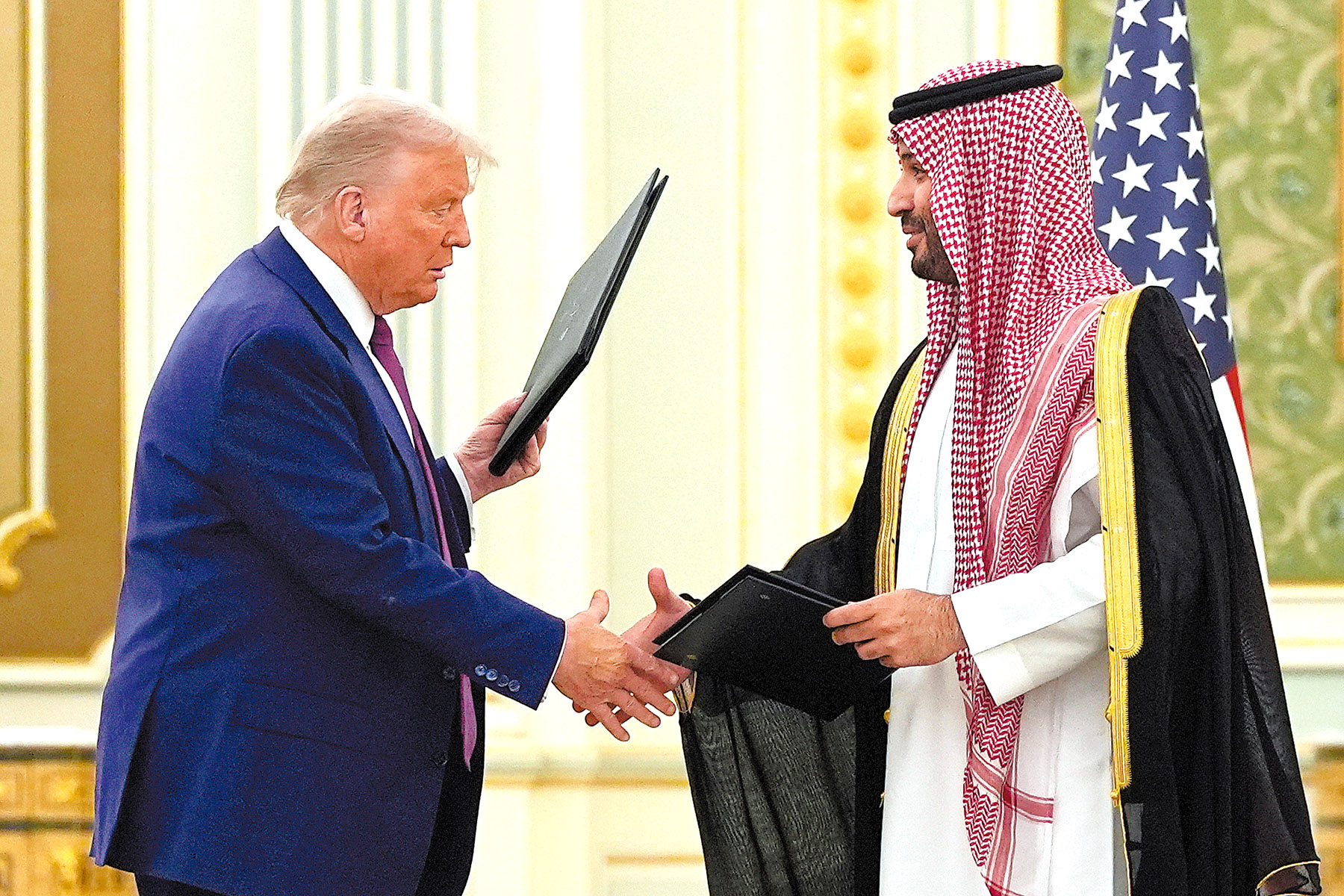Trump offers surprise Syrian sanctions relief as GCC nations call for resolution of Palestine issue

Gulf leaders appealed to US President Donald Trump to find a lasting solution to the Palestinian issue on the second day of his visit to the region, following a surprise announcement from his administration to lift sanctions on Syria.
In his opening address at the US-Gulf Cooperation Council countries’ summit on May 14, Saudi Crown Prince and Prime Minister Mohammed bin Salman Al Saud said that he looked forward to working with the United States to find a comprehensive lasting solution for the Palestinian people. The day before, he and Trump signed the Strategic Economic Partnership between two governments and witnessed several deals.
He also expressed his hope that the Gulf states’ relationship with the US would reach even higher levels, Al Jazeera reported. Qatari Emir Sheikh Tamim bin Hamad Al-Thani, Emir of Kuwait Sheikh Mishal al-Ahmad al-Jaber al-Sabah, Bahrain King Hamad bin Isa al-Khalifa, and GCC Secretary-General Jasem Mohamed AlBudaiwi were among those who attended the high-profile summit.
Trump, in his speech, praised the Gulf nations for being “at the forefront of creating a stable, peaceful, and prosperous Middle East”.
Addressing the Gaza conflict, Trump said that he shared the “hope of so many in this region for a future of safety and dignity for the Palestinian people” and acknowledged the GCC leaders’ “constructive role” in bringing an “end to this terrible conflict”. He also said Washington was “exploring” the normalization of ties with Damascus.
On May 14, the Saudi Ministry of Foreign Affairs posted photos on its X account of Trump meeting with Syria’s interim government leader Ahmed al-Sharaa in the presence of Prince Mohammed. Turkiye’s President Recep Tayyip Erdogan reportedly joined the meeting online.
Trump has become the first US president in 25 years to meet with a Syrian leader, following his offer of sanctions relief aimed at encouraging the war-torn Arab country to change its course. The two leaders held brief talks ahead of the Gulf summit, Arab News reported.
On May 13, Riyadh and Washington signed a raft of deals — ranging from energy security to defense and technology — amounting to $600 billion in investment commitments.
Among the deals was a record defense sales of nearly $142 billion. The agreement would entail the US providing Saudi Arabia with “state-of-the-art warfighting equipment and services from over a dozen US defense firms”, Xinhua News Agency reported.
Trump headed to the United Arab Emirates after receiving another warm welcome in Doha, the capital of Qatar.
The White House on May 14 announced deals totaling more than $243.5 billion with Qatar, calling the series of agreements with the Gulf Arab country will generate an economic exchange worth at least $1.2 trillion.
The two countries signed a statement of intent to further strengthen their security partnership, outlining over 38 billion dollars in potential investments including support for burden-sharing at Al Udeid Air Base and future defense capabilities. Al Udeid Air Base is reportedly the largest US military base in the Middle East.
The White House also said in a press release that Boeing and GE Aerospace secured a $96 billion agreement to sell Qatar Airways up to 210 Boeing 787 Dreamliner and 777X aircraft powered by GE Aerospace engines.
“It’s the largest order of jets in the history of Boeing. That’s pretty good,” Trump said in Qatar on May 14.
Other parts of the Qatar deal included purchases of drone and anti-drone technology from US defense companies like Raytheon and investments in the US energy sector.
“I think, after signing these documents, we are going to another level of relationship between Qatar and the United States,” Qatari Emir Sheikh Tamim bin Hamad Al-Thani.
Rasha Al Joundy, a senior researcher at the Dubai Public Policy Research Centre, called the US lifting sanctions on Syria a “historic moment”.
“This is a major shift in regional politics, Syria is back to its Arabic fold, and soon would be an important player,” she added.
On Gaza, she noted that Trump had been talking about ending the war even before he returned to office, but added that he faced obstacles from Israeli Prime Minister Benjamin Netanyahu.
Gokhan Ereli, Gulf studies coordinator at the Center for Middle Eastern Studies in Turkiye, told China Daily that the “most fundamental purpose” of Trump’s Gulf visits “is to strengthen economic partnerships between the US and the Gulf countries and to make the Middle East a place where more trade can be done”.
He noted that Trump was having problems with Netanyahu even before the president’s visit to the Gulf. The two countries’ divergent policies on “the Houthis, Iran, and Gaza” remain the primary source of disagreement.
Contact the writer at jan@chinadailyapac.com


